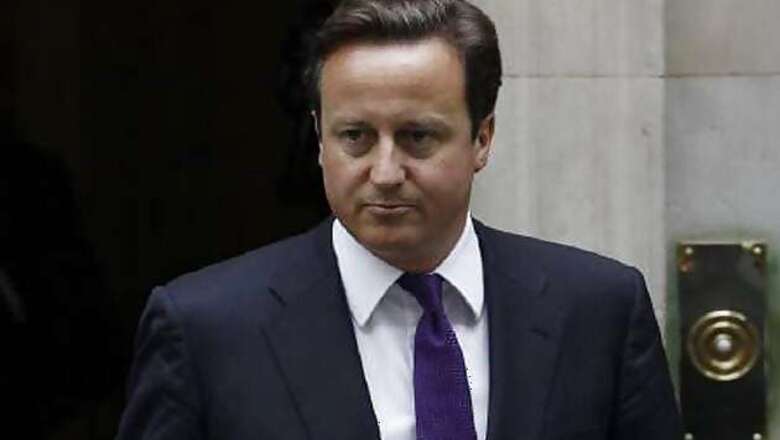
views
Colombo: Human rights abuses allegedly perpetrated in the war against LTTE haunted President Mahinda Rajapaksa on the sidelines of the CHOGM summit with UK Prime Minister David Cameron on Saturday giving Sri Lanka an ultimatum to conduct a credible probe into the war crimes by March, failing which he would seek an international investigation.
Rajapaksa promptly rejected Cameron's demand and the Sri Lankan government said it would not conduct any inquiry under "pressure" or allow an independent international probe.
The President, credited with ending the 30-year war against terror but facing criticism over rights violations, made a veiled attack on Cameron.
During a news conference, Rajapaksa rejected the British premier's demand and said, "It is his view. This is a democracy. He can say whatever he wants. People living in glass houses must not throw stone at others."
He referred to the actions of some countries in the name of regime change and the situation thereafter, an apparent reference to Britain's role in removing the Saddam Hussein regime in Iraq.
But when he was asked by a British journalist whether he was referring to Cameron, he shot back: "I have not taken any names. Don't take anything as a reference to you or to your PM. Please, that is why I didn't mention any names."
The heads of government and foreign ministers of the 53-member grouping today met at a "retreat" for informal discussions on agenda issues of the Commonwealth Heads of Government Meeting but Rajapaksa's news conference was dominated by questions on Cameron's forthright views on the alleged rights violations.
After a historic visit to war-ravaged Jaffna, the first by a foreign head of government since the island's independence from Britain in 1948, Cameron met Rajapaksa last night. He said they had a "free and frank" discussion on all issues, including an independent credible probe, reconciliation and rehabilitation of Tamils.
"I told President Rajapaksa that there is need for a credible, transparent and independent internal inquiry into the events at the end of the war (against LTTE) by the end of March. If that does not happen, I will use our position in the UN Security Council to move the UN Human Rights Commission and work with the Rights Commissioner for an independent inquiry," Cameron told a media interaction this morning.
"I will back the demand for an international investigation," Cameron said. When Rajapaksa was asked at his news conference about Cameron's demand, the President said there already was a "Lessons Learnt and Rehabilitation Committee" that had made several recommendations which were implemented.
There was also a commission to examine complaints of missing persons that was doing its job. A parliamentary committee was also going into all these issues, he added. "It was a 30-year war and there were so many issues. It takes time," he said. If there are any allegations, Sri Lanka was ready to inquire into them, he added.
Responding to a question whether he would agree that Cameron was mounting pressure on Sri Lanka, Rajapaksa said, "Pressure - (we) won't do anything under pressure. It is better to request, rather than demand or dictate."
At one point, he lost his cool and said, "Who are you. They have to trust us. Why can't you trust us. We have eminent people in Sri Lanka who are very independent."
Asked about Cameron's visit to Jaffna, he wryly remarked "Welcome." Rajapaksa described his meeting with the British premier as "very cordial and friendly".
Cameron said in his media interaction that matters ultimately centred round Sri Lanka's reconciliation with the affected Tamils of the Northern Province and rehabilitation of the people displaced by the war that ended in 2009.
Asked why he would wait till March for an independent probe into the alleged rights abuses, Cameron said Rajapaksa told him that he needed time as Sri Lanka was still recovering from the effects of the war.
He said he accepted the position that Sri Lanka needs time for reconciliation. "I understand it needs time," he added.
Cameron said he cited to Rajapaksa the example of Northern Ireland and how Britain suffered for years from terrorism and took steps to reconcile with the Irish.
To a question recalling his statement that he had some questions to ask of Rajapaksa and whether he put all of them to him, the British premier said the two had frank discussions but admitted that Rajapaksa did not accept all that he had told him.
He impressed on Rajapaksa the need to settle the issues of human rights and journalistic freedom and to ensure that the Tamil people lived a life of dignity and respect.




















Comments
0 comment